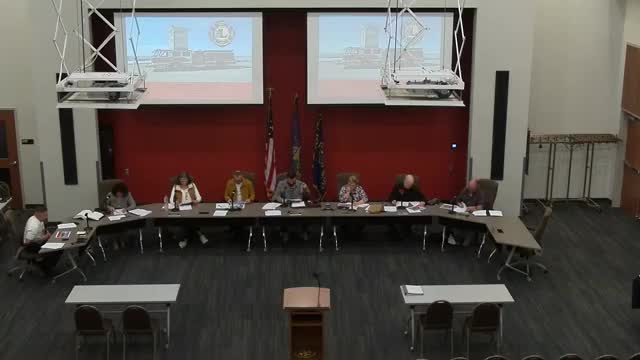Lebanon fire chief reports ISO upgrade, rising apparatus costs and lithium‑ion battery fire incidents
Get AI-powered insights, summaries, and transcripts
Subscribe
Summary
Fire Chief A.J. Schweitzer told council the department’s ISO rating improved from class 4 to class 3, training hours rose, apparatus costs have jumped and the department has investigated multiple fires tied to lithium‑ion batteries. He also outlined community outreach and an engine purchase co-funded by the city.
Fire Chief A.J. Schweitzer briefed council at the pre-council meeting on department operations, equipment costs, training and public-safety outreach.
Schweitzer said the department’s Insurance Services Office (ISO) classification improved from Class 4 in 2018 to Class 3 after a 2024 evaluation, a change that can reduce homeowners’ insurance premiums. He credited improvements by the department, the water authority and the regional dispatch center for the upgrade.
The chief highlighted equipment and budget pressures. Showing his presentation, Schweitzer said the new Engine 16 — which the city funded at 50% — had a quoted base price of $778,000; “If we were to order that today, it would be over a million,” he said, citing manufacturer consolidation and pending emissions changes in 2027 as cost drivers.
Operational metrics and training The department reported 1,110 calls through Aug. 31, 2025, training hours increased by roughly 2,000 hours over the prior period, and the department’s reported fire-loss figure was over $1.2 million for the year to date; Schweitzer cautioned that a recent Church Street fire was not yet included and would raise that total. He described expanded training and certification efforts, including confined-space and aerial-operation certifications, and said the department is classifying reserve pumpers and ladder trucks to reflect apparatus status in ISO scoring.
Lithium‑ion batteries and prevention work Schweitzer emphasized growing risk from lithium‑ion batteries in consumer devices and e-bikes. He said the department investigated four fires in the past two-and-a-half years that originated with lithium‑ion batteries and showed the council video clips of thermal runaway incidents to illustrate hazard behavior. He advised residents to use third-party‑tested batteries (UL listed) and recommended retail drop‑off points for disposal: big-box stores such as Lowe’s and Home Depot and a local battery warehouse on Schneider Drive.
Community programs and safety education Schweitzer described community outreach programs — including a Red Cross “Sound the Alarm” initiative that installs up to four smoke detectors in qualifying owner‑occupied homes — and summarized the department’s open house and fire‑prevention activities for schools. He also outlined the department’s community-risk‑reduction work tied to inspections and public education, and said the ISO team gave the city positive credit for those efforts.
Council and mayoral follow-up focused on how ISO scoring treats water availability and apparatus deployment, whether reserve apparatus classification affects daily operations (Schweitzer said it will not change frontline deployment), and the department’s process for replacing and using reserve vehicles.
